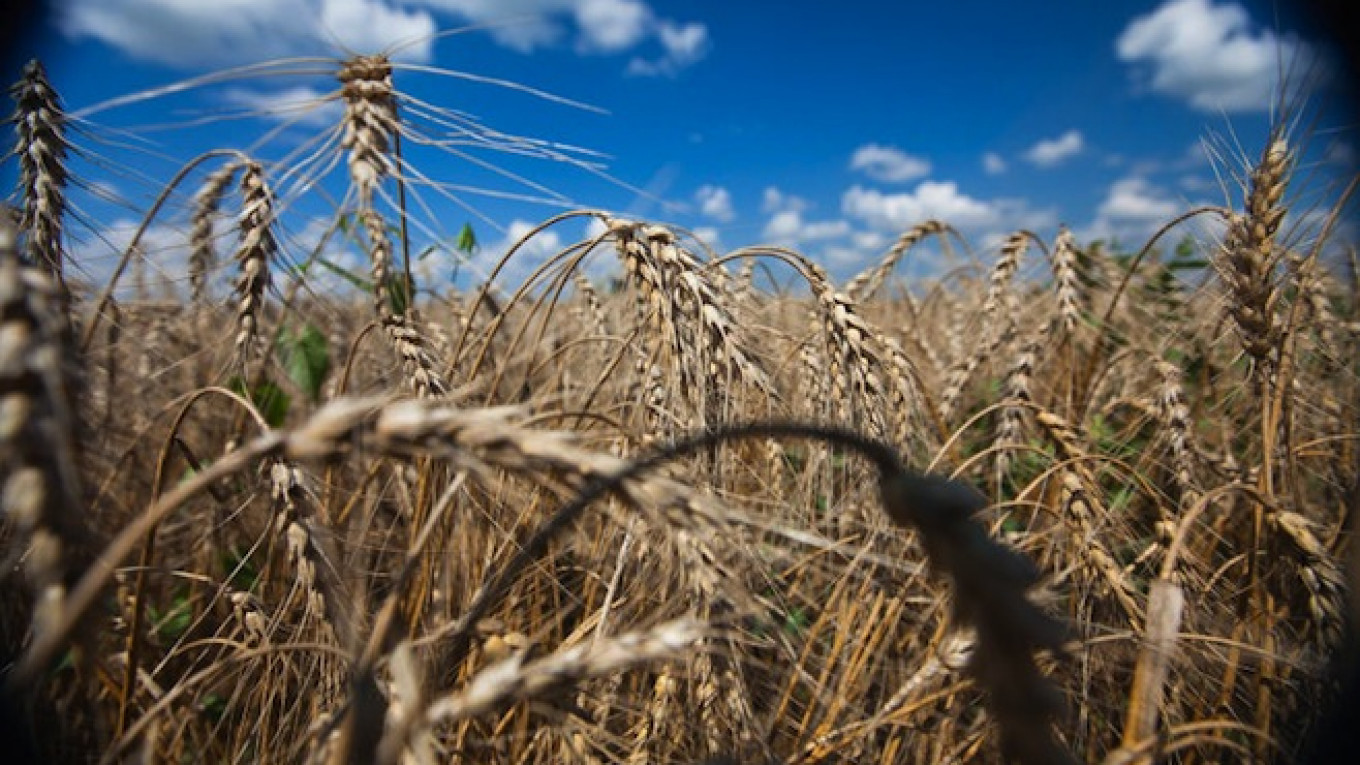Russia has strengthened informal curbs on grain exports since the start of the year, further complicating trading before the introduction of an export tax, a Russian grain export lobby said Tuesday in a letter to officials.
Russia, expected to be the world's fourth-largest grain exporter this year, hopes that export curbs will cool domestic grain prices and constrain food inflation as the country tackles a financial crisis linked to plunging oil prices and Western sanctions.
These curbs "complicate trading operations and completely stop them from time to time," the National Association of Exporters of Agricultural Products said in a letter to Deputy Prime Minister Arkady Dvorkovich and other officials.
Moscow imposed tougher quality monitoring in December and later decided to impose a tax on grain exports from Feb. 1.
The grain export group listed a new set of curbs, including more and longer quality monitoring by food safety watchdog Rosselkhoznadzor and delays on getting the final documents needed from ports for loaded ships to set sail.
The association, which accounts for more than 75 percent of the country's grain exports, asked the government to ease the curbs so traders could meet their contracts before the export tax is imposed.
The tax, or a duty on wheat exports, will amount to 15 percent of the customs price plus 7.5 euros and will be no less than 35 euros ($40) per ton until June 30, 2015.
"Problems are becoming more complicated in two ways — through technical and economic measures," said Dmitry Rylko, head of agriculture consultancy IKAR. "They make Russia's grain less competitive on the global market."
Russia, which has imposed grain export curbs for the third time since 2008, had been exporting record volumes from a large grain crop of 105 million tons before the limits.
Its main wheat buyers are Turkey, Iran and, vulnerable to supply disruption, Egypt.
Russian officials also hope the curbs will make it cheaper for the Agriculture Ministry to replenish its stocks, and, according to traders, domestic prices are declining.
However, the ministry is still far from its goal of buying up to 3.5 million tons of grain this 2014-15 marketing year, which started on July 1, as its prices are lower than the market price. It has bought 308,860 tons of grains so far, including 8,505 tons acquired during a tender on Tuesday.
A Message from The Moscow Times:
Dear readers,
We are facing unprecedented challenges. Russia's Prosecutor General's Office has designated The Moscow Times as an "undesirable" organization, criminalizing our work and putting our staff at risk of prosecution. This follows our earlier unjust labeling as a "foreign agent."
These actions are direct attempts to silence independent journalism in Russia. The authorities claim our work "discredits the decisions of the Russian leadership." We see things differently: we strive to provide accurate, unbiased reporting on Russia.
We, the journalists of The Moscow Times, refuse to be silenced. But to continue our work, we need your help.
Your support, no matter how small, makes a world of difference. If you can, please support us monthly starting from just $2. It's quick to set up, and every contribution makes a significant impact.
By supporting The Moscow Times, you're defending open, independent journalism in the face of repression. Thank you for standing with us.
Remind me later.


